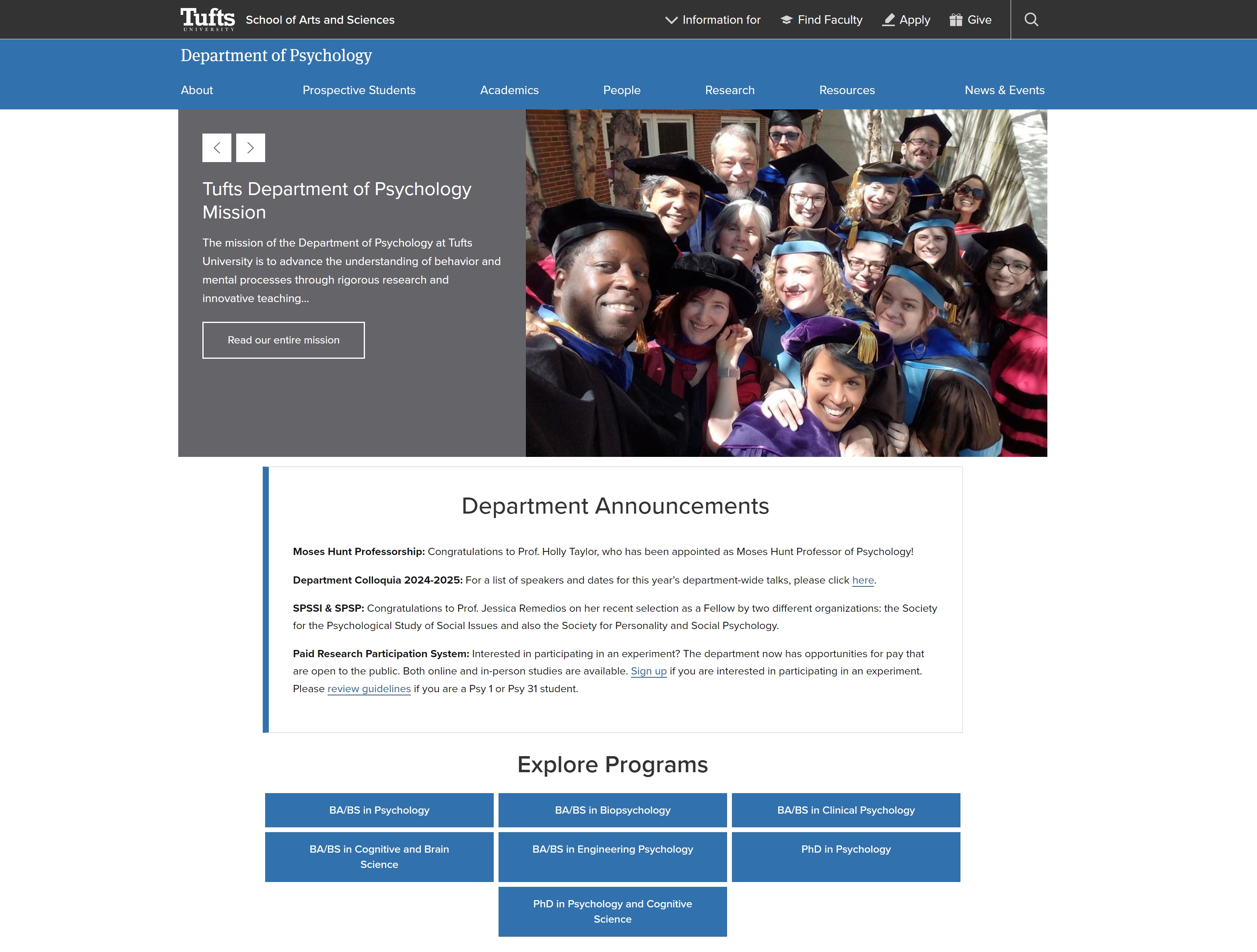
PsychoPy
PsychoPy is a free, open-source software for creating psychological experiments and visual stimuli.

Detalyadong Panimula
An open‐source application written in Python for creating experiments in behavioral sciences, including psychology and neuroscience. PsychoPy offers both a graphical Builder interface and a script‑based coder view, enabling researchers to design reaction‑time tasks, psychophysical experiments, and eye‑tracking studies without licensing fees. PsychoPy allows researchers and students to design and run experiments easily, with a focus on flexibility and customization.
Higit paPananaliksik

Psychological & Brain Sciences - Texas A&M University
The Department of Psychological and Brain Sciences at Texas A&M University produces scientific discoveries that illuminate psychological processes in human behavior, focusing on mental and physical health disorders, and the psychological and social processes that influence thoughts, feelings, and behaviors. The department is highly research-active, with faculty leading the field in editorial boards and grant review panels, and preparing students for leadership roles in their fields.

Sci-Hub
Sci-Hub is a website that provides free access to scientific literature, bypassing paywalls and making research papers available to anyone with an internet connection. It aims to democratize access to knowledge and promote open science.

Tufts University Department of Psychology
The Department of Psychology at Tufts University conducts cutting-edge research aimed at understanding the causes and consequences of mental processes and behavior. Our work addresses social, cognitive, and neural levels of analysis. We are innovative and interdisciplinary in our approach and emphasize understanding phenomena that have a direct impact on society. Scientists at all levels - faculty, postdoctoral trainees, and graduate and undergraduate students - engage in collaborative scholarship and critical thinking in the classroom and in the laboratory. This synthesis, between research and teaching, positions us to ask and answer fundamental questions while also enriching our students' understanding of psychology.